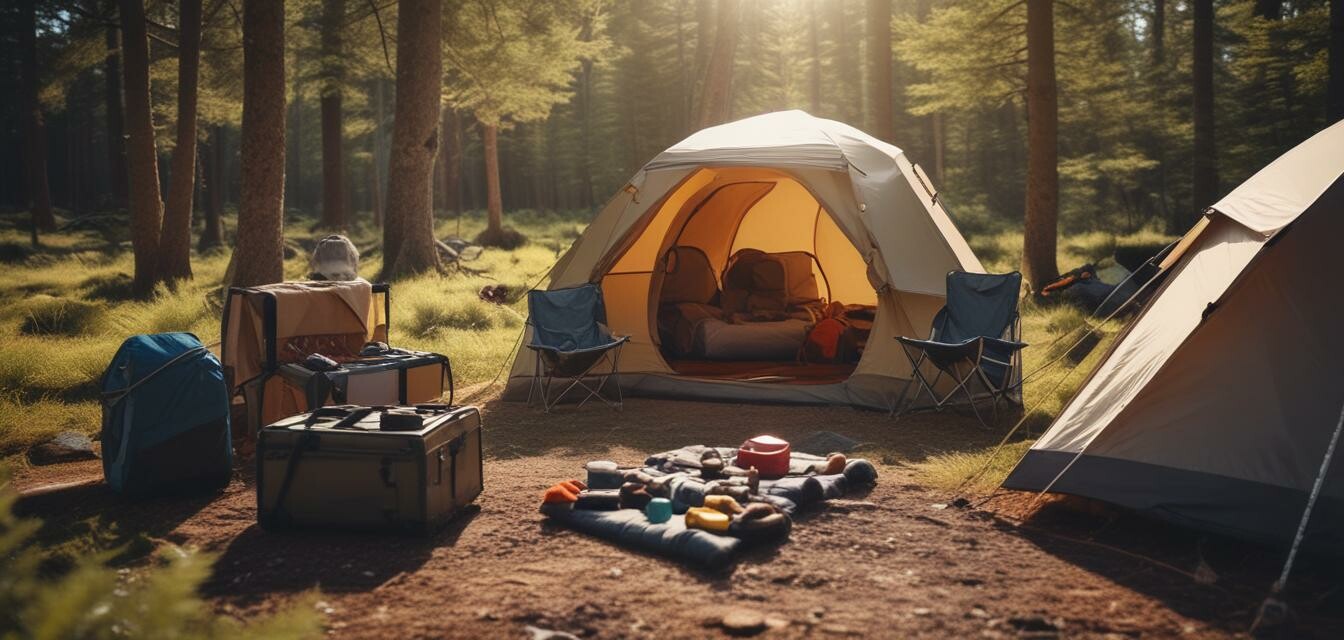
Best Practices for Storing Solar Camping Equipment
- Proper storage conditions enhance the efficiency and lifespan of solar camping equipment.
- Regular maintenance and cleaning of gear are essential for optimal performance.
- Organizing your equipment can save time during setup and packing.
- Consider environmental factors while storing equipment.
- Follow specific guidelines for different types of solar camping gear.
Storing solar camping equipment correctly is vital to ensure functionality and durability. Whether you are a seasoned camper or a weekend warrior, these best practices will help you maintain your gear correctly, maximizing its efficiency and lifespan. In this article, we will explore detailed tips and strategies for storing your solar camping equipment properly.
Understanding your solar camping equipment
Before diving into the storage methods, it's important to identify the types of solar camping equipment you may have. Major components usually include:
- Solar panels
- Solar tents
- Solar cookers and grills
- Solar lanterns and lights
- Solar-powered backpacks
- Solar showers
General storage guidelines
Here are some universal storage tips you should follow regardless of your gear type:
- Keep equipment dry: Moisture can cause damage such as rust or mold. Always ensure your equipment is dry before storage.
- Avoid extreme temperatures: Excess heat and cold can degrade materials. Store your gear in a climate-controlled environment if possible.
- Organize your gear: Use storage bins and bags to keep your equipment organized. This can help you find items quickly during your next trip.
- Perform regular maintenance: Regularly check and clean your solar equipment to ensure it remains in working order when needed.
Specific storage practices by equipment type
| Equipment Type | Storage Tips |
|---|---|
| Solar Panels |
|
| Solar Tents |
|
| Solar Cookers & Grills |
|
| Solar Lanterns & Lights |
|
| Solar-Powered Backpacks |
|
| Solar Showers |
|
Ensuring longevity through maintenance
Proper storage is only part of the equation. Regular maintenance is equally crucial. Here are a few tips to keep in mind:
- Inspect devices and equipment for signs of wear and tear.
- Clean and recharge batteries as needed to prolong battery life.
- Ensure solar panels are free of debris to maximize sunlight absorption.
Environmental considerations
The environment in which you store your gear can significantly impact its longevity and usability:
- Store equipment indoors during harsh weather to prevent damage.
- Consider humidity levels, as high humidity can lead to rust and mold.
- Avoid storing near chemicals that could react with materials.
Conclusion
Storing your solar camping equipment properly is essential to ensure its efficiency and lifespan for many adventures to come. Remember to keep it clean, dry, and organized. By following these best practices, you not only enhance the durability of your investment but also make your next camping trip much more enjoyable.
Tips for beginners
- Invest in good storage solutions that keep your gear organized.
- Label containers for quick identification of contents.
- Practice setting up your gear at home before heading out to get familiar with everything.
Pros
- Increased efficiency of solar camping equipment.
- Longer lifespan of gear through preventive care.
- Time-saving during setup and breakdown.
Cons
- Requires time and effort to maintain gear.
- Initial investment for quality storage solutions.
For more information on optimizing your camping experience, check out our section on expert tips and learn about the latest news and trends in solar-powered camping. Additionally, you can explore our solar camping tents category for more insights!